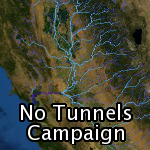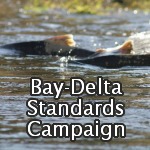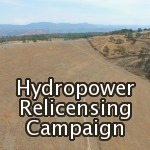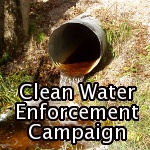CSPA and ten allied conservation groups filed comments on January 7, 2022 in overall support of the Water Quality Certification (WQC) for the relicensing of the Don Pedro and La Grange hydroelectric projects on the Tuolumne River. The State Water Resources Control Board (Board) issued the WQC in January 2021. As it stands today, the WQC would require substantially increased flows in the lower 52 miles of the Tuolumne River. Ongoing litigation by CSPA and others could increase Tuolumne River flows even further.
In February 2021, CSPA and allies petitioned the Board to reconsider two narrow issues in the WQC: June flows in the lower 26 miles of the river, and the amount of augmentation of large wood the WQC requires.
Also in February 2021, the license holders of the projects, Turlock Irrigation District and Modesto Irrigation District (Districts), as well as the City and County of San Francisco (City) and the Bay Area Water Supply and Conservation Agency (BAWSCA), filed voluminous petitions for reconsideration asking the Board to rescind the WQC entirely.
Many of the arguments in the Districts’ and the City’s February 2021 petitions to the Board were grounded in a Rule concerning water quality certifications the that Trump administration implemented in 2020. That rule gutted the ability of states to protect water quality, including flow. The Biden administration has initiated a new rulemaking to substantially unravel the Trump-era Rule. In October 2021, a federal judge issued an Order Vacating the Trump Rule.
Most of the rest of the legal arguments in the petitions for reconsideration of the Districts, the City, and BAWSCA were incorrect for other reasons. The comments of CSPA and allies cite to controlling, foundational case law on water quality certifications to rebut those arguments.
For the past ten years, CSPA, the Tuolumne River Trust (TRT), and others have advocated for and suggested approaches to managing water supply and demand that would mitigate the water supply lost in restoring adequate flows to the Tuolumne River. The Districts, the City, and BAWSCA, in contrast, all strongly opposed analysis of such mitigation measures throughout the licensing and WQC proceedings. In recent comments in several venues, such as planning for groundwater management in the Modesto and Turlock subbasins, CSPA and TRT have continued to encourage consideration of such alternatives.
The timeline for the Board’s response to the petitions for reconsideration is unknown but likely short.
Note: The Districts are also appealing in the Federal Court of Appeals for the D.C. Circuit a decision by the Federal Energy Regulatory Commission to deny waiver of the WQC. CSPA and four other conservation groups have intervened in that case in support of FERC’s decision denying waiver. The current responses to the Board are made to with the understanding that a federal finding of waiver would make the petitions to the Board moot.









